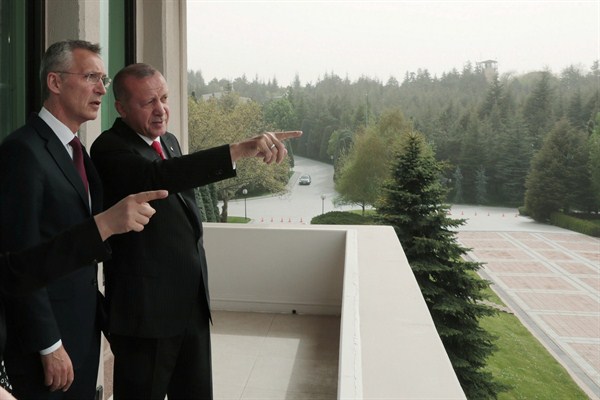The United States and Turkey have engaged in extensive diplomacy for over a year and a half now to try and resolve the festering dispute over the Turkish government’s decision to buy the advanced S-400 missile defense system from Russia. President Donald Trump and President Recep Tayyip Erdogan have spoken about it personally several times, including in a phone call late last month. But the rift between the two is still too great to bridge. How this standoff is resolved, if at all, could permanently alter the trajectory of U.S.-Turkey relations, and by extension, Turkey’s role in NATO and its other Western ties.
Washington wants Turkey to terminate the S-400 acquisition, arguing that the deployment of such a weapon system on Turkish territory could compromise the operational effectiveness of the new F-35 fighter jet. Turkey, one of several countries involved in the long-delayed, trillion-dollar F-35 program, has ordered more than 100 of the jets, and was set to have the first ones delivered later this year. Turkey has argued that the S-400 decision is a sovereign matter, and that if the concerns are technical, it would work with the U.S. and NATO partners to mitigate any risks.
In recent weeks, the U.S. has raised the pressure on Turkey. In early April, it froze the delivery of any F-35s until a solution on the S-400s is found. A bipartisan group of senators then upped the ante by warning Turkey in an op-ed that while it is an important partner in the F-35 program, “it is not irreplaceable.” They gave Ankara an ultimatum: Decide by the end of the year whether it will have the S-400 or the F-35, because “it will not have both.” To back up its position, Congress has threatened sanctions under the 2017 Countering America’s Adversaries Through Sanctions Act.

